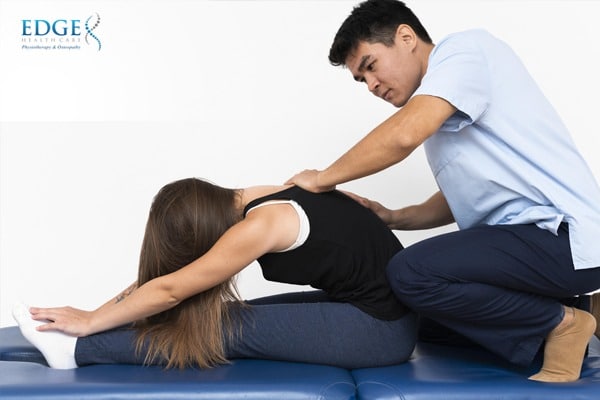
Experiencing dizziness such as wooziness, lightheadedness and a false sense of spinning might not seem like a big deal but frequent dizzy spells can significantly affect your life. While dizziness very rarely points to a life-threatening condition, it is still important to seek prompt treatment so as to regain your quality of life.
Here are some common causes and how vestibular physiotherapy comes into play to improve symptoms – keep reading to find out more.
Learn more: Debunking 5 Common Myths About Physiotherapy
What causes dizziness?
- Benign paroxysmal positional vertigo (BPPV)
A common cause of dizziness is BPPV, a condition that results in intense but brief false spinning or moving sensations. Episodes can be triggered by swift changes in head movement such as turning over in bed. This is a type of inner ear problem and vestibular rehabilitation can help by improving your balance.
- Vestibular migraine
This is a type of migraine-related dizziness where a headache is often accompanied by sensitivity to light, sound and movement. Such episodes can last from minutes to hours and cause a great disturbance to your daily life.
- Meniere’s disease
Another condition of the inner ear that brings about dizziness is Meniere’s disease, caused by excessive fluid buildup. You may experience hearing loss, a ringing noise inside the ear and a feeling like the room is spinning. Thankfully, vestibular physiotherapy can improve the symptoms and even help to reduce the disability that transpires during episodes.
- Cervical vertigo
Also called cervicogenic dizziness, cervical vertigo causes both neck pain and dizziness. As your neck plays an important role in your balance and coordination, an inflammation or injury to the area can make you feel dizzy and unsteady.
How does vestibular physiotherapy help?

Vestibular physiotherapy is a rehabilitation programme boasting a range of techniques and exercises that will help you to manage dizziness.
- Vision stability training
Vision stability exercises can allow the eye, brain and inner ear to recalibrate, reducing dizziness in return.
- Stretching and strengthening exercises
These exercises that are taught by a professional physical therapist in Singapore help with both neck pain and dizziness as they strengthen the muscles so you maintain a better posture throughout the day.
- Balance retraining
As dizziness is closely linked to balance, doing balance exercises increases your body strength, reduces your risk of falling and most importantly, decreases symptoms of dizziness. Some examples of balance exercises include standing with your weight on one leg and raising the other leg, and standing up and sitting down without using your hands.
- Walking exercises
Walking is a simple but powerful exercise that can improve your balance. Walk and stop, walk and turn around, and walk and turn your head are some effective exercises to keep your muscles toned, increase body strength and slowly enhance balance.
Book an appointment for vestibular physiotherapy today

Fight dizzy spells by booking an appointment for vestibular physiotherapy in Singapore today! Here at Edge Healthcare, our physical therapists are trained to review your medical history, make a thorough assessment, and examine your balance, gait, visual stability and movement as well as neck mobility.
From there, the physical therapist will come up with a treatment plan depending on the cause of your dizziness.

